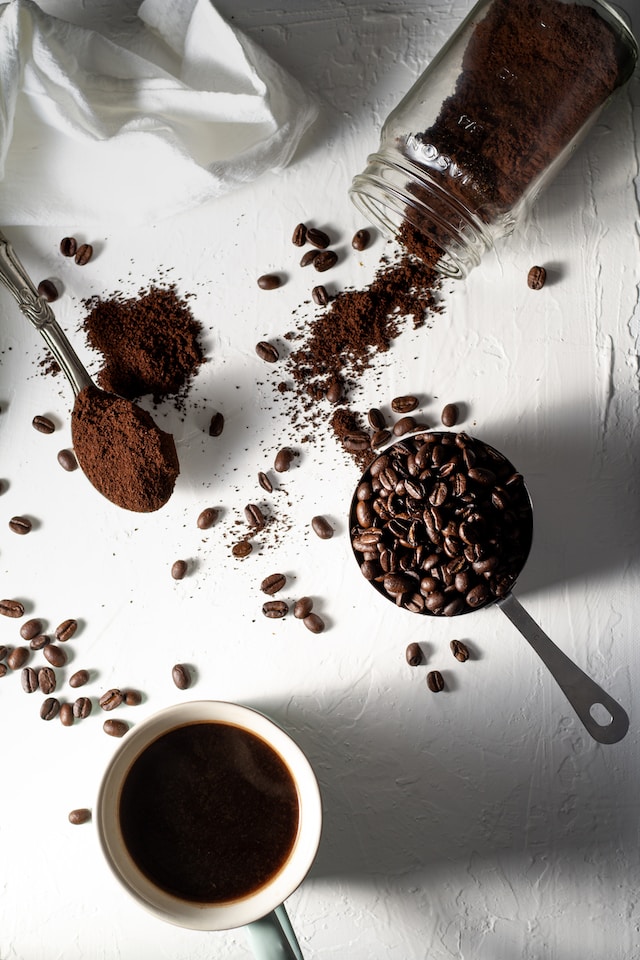If you don’t really care about the coffee you drink, this article probably isn’t for you. If you obsess over every little detail, like a mad coffee scientist, keep reading. Here are the four things every coffee lover should know.

Coffee Has Various Flavours And Aroma Profiles
The flavor of coffee can be influenced by several factors, including the origin of the beans, the roast level, and the brewing method. Each of these factors can contribute unique and complex flavors to the final cup.
One of the most significant factors in determining coffee flavor is the origin of the beans. Coffee beans grown in different regions around the world can have distinctive flavors and aromas. For example, coffee beans grown in Ethiopia are known for their bright, fruity flavors, while those from Sumatra are known for their earthy, spicy notes.
The roast level of the beans can also have a significant impact on flavor. Lighter roasts tend to have brighter, more acidic flavors, while darker roasts can be richer and more robust. Some coffee lovers prefer the complex flavors of a medium roast, which offers a balance between acidity and richness.
Finally, the brewing method used can also influence the flavor of the coffee. Each brewing method extracts different flavors and aromas from the beans. For example, a pour-over method can bring out delicate floral notes, while a French press can produce a full-bodied, earthy flavor.
The flavor of coffee is diverse and complex, with a range of flavors to suit every taste preference. By experimenting with different beans, roasts, and brewing methods, coffee lovers can discover the unique and exciting flavors that coffee has to offer.
Quality Coffee Beans Matter
While the brewing method and the skill of the barista play a role in the quality of coffee, the most crucial factor is the quality of the coffee beans.
First and foremost, the flavor of coffee is directly linked to the quality of the beans. High-quality coffee beans are grown in ideal conditions, harvested at the right time, and processed with care. This results in beans that have a more complex and nuanced flavor profile. On the other hand, low-quality beans are often harvested too early or too late, resulting in a bland and uninteresting flavor.
The freshness of the beans is another critical factor in the quality of the coffee. Coffee beans start to lose their flavor and aroma as soon as they are roasted. Therefore, it is essential to use freshly roasted beans to ensure that the coffee tastes its best. High-quality coffee roasters often roast their beans in small batches and package them immediately to preserve their freshness.
Moreover, quality coffee beans can also have health benefits. Coffee contains antioxidants, which can help prevent cell damage and reduce the risk of certain diseases. However, not all coffee beans are created equal in terms of their antioxidant content. High-quality beans that are grown and processed with care are likely to contain more antioxidants than low-quality beans.
Finally, using quality coffee beans is also more environmentally friendly. Coffee beans that are grown sustainably and processed with care are less likely to contribute to deforestation, water pollution, and other environmental issues. That’s why it’s so important to find a sustainable supplier like Covoya coffee.
Quality coffee beans matter because they directly impact the flavor, freshness, health benefits, and environmental impact of coffee. Investing in high-quality coffee beans can result in a more enjoyable and sustainable coffee experience.

The Brewing Method Affects The Taste
The way coffee is brewed can significantly impact its flavor and aroma. We’ll explore how the brewing method of coffee affects the taste.
1. Filtered Coffee
Filtered coffee, also known as drip coffee, is a popular brewing method that involves pouring hot water over coffee grounds in a paper or metal filter. This method produces a clean and smooth cup of coffee with a lower acidity level. The paper filter can absorb some of the oils and flavors of the coffee, resulting in a less complex flavor profile.
2. French Press
The French press method involves steeping coffee grounds in hot water before pressing the grounds to the bottom with a plunger. This method produces a full-bodied and rich cup of coffee with a higher acidity level than filtered coffee. The metal filter used in a French press allows more oils and flavors from the coffee to pass through, resulting in a more complex flavor profile.
3. Espresso
Espresso is a brewing method that involves forcing hot water through finely ground coffee beans under high pressure. This method produces a concentrated and strong cup of coffee with a higher acidity level than filtered coffee. Espresso has a thick and creamy texture due to the crema that forms on top of the shot. The flavor of espresso is more concentrated and intense than other brewing methods, with notes of caramel, chocolate, and nuts.
4. Cold Brew
Cold brew is a brewing method that involves steeping coffee grounds in cold water for several hours before straining the liquid. This method produces a smooth and sweet cup of coffee with a lower acidity level than other brewing methods. The slow extraction process allows for a more extended exposure of the coffee to water, resulting in a less bitter taste.
The brewing method of coffee can significantly impact its flavor and aroma. Each method produces a unique taste profile, and coffee lovers can experiment with different brewing methods to find the one that suits their taste preferences. By understanding how brewing methods affect the taste of coffee, coffee lovers can elevate their coffee experience and enjoy a delicious cup of coffee every time.
The Importance Of Water Quality
While many factors affect the taste of coffee, water quality is often overlooked. However, the importance of water quality cannot be understated when it comes to making a great cup of coffee.
The quality of water can also impact the lifespan of coffee brewing equipment. Water with high mineral content can cause mineral build-up in coffee machines and equipment, leading to clogs and damage. Using filtered water or regularly descaling equipment can help prevent this from happening, resulting in longer-lasting equipment.
By using filtered or low mineral content water, coffee lovers can ensure that their coffee tastes its best and their equipment lasts longer. With a little attention to water quality, coffee lovers can enjoy a consistently delicious cup of coffee every time.
Hey welcome to my blog . I am a modern women who love to share any tips on lifestyle, health, travel. Hope you join me in this journey!

Speak Your Mind